Introduction
Hi guys, welcome to ‘The Grind’. The Grind is a four-part series aimed helping you to achieve the dream of ranking up to Legend (for the first time). As always guys, comments, likes, questions, etc are welcome.
The four parts are:
- Part I: Introduction & General Tips
- Part II: Research & Self-Mastery
- Part III : Deck Selection
- Part IV: Psychology
Right now you are reading the final instalment of the series. Today we will be looking at the various psychological aspects of grinding, basically the article is about ’tilt’ (preventing it, avoiding it, and dealing with it) and personality. Let’s start with personality…
Personality
I’m about to argue that your personality can be a barrier to success. This section can be skipped entirely if the following two things are true:
- You have heard of “Timmy, Johnny and Spike” (This is a reference to a famous “Magic: The Gathering” article).
- You are a “Spike”.
Mark Rosewalter once wrote a now famous Magic: the Gathering article about the different types of Players that play Magic. I would strongly recommend you check out those articles (here and here). But if you don’t wish to, you know, read stuff I’ll briefly quote Brian Kibler’s summation of personality types below:
Spike
Spike is playing to prove something. He wants to win, and his approach to the game and the cards and decks that he plays are all based around that central principle. Spike cares less about *how* he wins than the simple fact that he does.
Johnny
Johnny wants to express something. He wants to show the world how clever he can be. He wants to win in crazy and creative ways, while playing wacky or unusual decks. He too wants to win, but he wants to do it on his own terms.
Timmy
Timmy wants to feel something. He plays games for big, exciting moments, like crushing his opponents with an awesome giant dragon. While he wants to win, like Johnny his desire for success is often secondary to his desire for a certain kind of experience.
I see no reason to think that these Magic personality types don’t apply to Hearthstone as well. Here’s my quick and rough list of Hearthstone players according to my perception of their personality type:
Notable Hearthstone Timmy’s: Forsen, Day9, Kripparian, Noxious
If you watch these guys stream, they usually emphasise having fun over competitiveness. For example, whenever Kripparian bothers to play constructed, it’s usually with some sort of crazy deck he’s just built. As for Noxious; you guys have seen Randuin Wyrn, right?
Notable Hearthstone Johnny’s: Reynad, Brian Kibler
Pay attention to the line-up Reynad brings to most tournaments; in many cases it will be a mainstream deck with one or two unique twists (e.g. Blingtron-3000 in Mech Mage). To me, it seems that Reynad values being different almost as much as he values winning. That’s why I’ve pencilled down as a Johnny.
Whenever I check out Kibler’s stream, he’s usually trying to make some sort of deck work (usually its Dragons). His fascination with deck-building makes me put him in the Johnny camp.
Notable Spikes: Thjis, Savjz, Firebat, Lifecoach
If you watch these guys play, they tend to pick the best decks and then try to play those decks flawlessly. Simply stated; these guys play to win.
Now, it should be noted that the above classifications are based on my own opinion. If you ask the players themselves they may disagree (Kibler, for example describes himself as a Timmy/Spike Hybrid). I think three more things are important to note:
- These personality types are not *fixed*: Take Kripparian for example, back when he played World of Warcraft he was one of the best Hunter players in the game, he also got a world first in Diablo 3 as well. To achieve these feats he would have had to crunch numbers and practice like crazy. In short, when it comes to other games, I’d say Kripparian is/was a hard-core Spike. In Hearthstone though, winning does not seem to be a priority for him.
- Being a Timmy doesn’t mean that you are a bad player: Kripparian’s has hit Legend and is one of best Arena players. Meanwhile Kibler has beaten some of the best pro’s in major Hearthstone tournaments.
- You can fit somewhere in-between the types: As mentioned above, Kibler considers himself a cross between Timmy and Spike. I consider myself a hybrid between Johnny and Spike.
At this juncture I would ask you to consider what type best describes you. Know what personality type you are? Good. Now I want to say something that might be a little controversial:
“Spike’s require less skill to hit Legend. Timmy Players require a lot of skill to hit Legend. Johnny’s are somewhere between those two extremes.”
In a nutshell, hitting Legend requires you to play a lot of games with a high win-rate. This is, I argue, a goal which Spike is naturally suited for. Spike will naturally gravitate toward strategies that maximise his chances of winning (e.g. Spike will pick the best deck in the format). Since Spikes personality pushes him to win, he can probably hit Legend without being an exceptionally strong player. In short, what I am saying is that the Spike personality can, to some SMALL extent, compensate for a lack of skill.
Meanwhile, the Timmy Personality is not used to thinking about winning at all costs. His/her natural inclination might be to pick fun decks/lines of play as opposed to picking the move/deck that maximizes win-rate. Make no mistake, Timmy’s can hit legend, but their personality is, I argue a SMALL handicap.
To see that imagine two players of equal skill (Spike and Timmy). Spike will probably place higher on Ladder than Timmy will. Why? Well, Timmy is trying to do crazy shit with alarm-o-bot, meanwhile Spike is crushing it with ‘Face Hunter’. And as the meta shifts Spike changes his deck to counter the new emerging meta. Timmy meanwhile either doesn’t change deck full-stop or plays something just as crazy as the first deck (e.g. a Malygos + Aviana combo deck). I’m perhaps exaggerating a bit here but hopefully you get the point; hitting Legend requires you to win a lot of games and the Spike personality is more suited to achieving that goal than the Timmy player is (the thing Timmy does a lot better than Spike is having fun).
So here’s a tip:
TIP #1: If you want to hit Legend try to be Spike (for a season).
In part I of this series I suggested that if I personally want to push for Legend I make myself miserable in the process. Now you can perhaps understand why I say that: I’m a Johnny/Spike Hybrid. The Johnny side of me loves deck-building, when I play decks on ladder 90% of the time the decks I play are of my own creation. But, I also have a ‘Spike’ side to my personality as well; I’m very interested in general theory and try my best to play every single turn of a game as precise as possible.
The ‘In-depth turn Analysis’ series is an excellent example of my nature; the most recent episode features a Control Hunter deck I built (that’s my Johnny side shining through) but then the article focuses on playing that deck as precise as possible (that’s my ‘Spike’ side). If I was a “pure Spike”, that article would have been the same BUT FOR the fact that the deck would have been Secrets Paladin or something. But I digress…
If I want to hit Legend I must unfortunately move away from my natural inclination to do “Johnny things” and become Spike. And for me personally, being a ‘hard-core Spike’ is not particularly fun.
If you are a Timmy player, you might find the transition into Spike (for a season) even more painful than I do. But Timmy, this is something you must do: The grind to Legend is a difficult and arduous task, you need to leverage any advantage you possibly can.
What is ‘Tilt’?

For those of you that have never heard of the phrase ‘Tilt’ I will define it for you. Tilt is basically a Poker term for the negative emotional state you sometimes find yourself in, usually after a bad loss or a bit of bad RNG. Simply put, bad/unlucky events make you feel sad, frustrated, angry, and so on.
Negative emotions are not in themselves a serious problem; rather, the problem occurs when these feeling impair your decision-making and you lose more games/hands as a result. Playing worse is likely to lead to more losses which leads to more negative feelings which leads to playing even worse which leads too… well I’m sure you get the picture; if you are not careful you can find yourself trapped in a vicious circle. In short, the reason we want to avoid tilt is because in many cases our play is the worse for it.
But with that said perhaps this need not be the case, in a recent PC Gamer interview Reynad said the following:
“PC Gamer: How do you avoid tilt when you play?
Reynad: You can’t just tell people not to feel emotions, it doesn’t work that way. Just try not to have it affect your play. If you can embrace the tilt that’s fine too. There’s a lot of ways to handle it. I feel like tilt has never really affected my play over the past ten years of playing card games. It’s not that I don’t get tilted it’s that I play the same through the tilt from what I’ve noticed and what other people tell me. You don’t have to avoid tilt altogether, but as long as you don’t let it affect your play it’s fine.” {Source}
Reynad’s advice is pretty simple; instead of trying to avoid tilt just try to discover ways to ensure that it doesn’t adversely affect your play.
Unfortunately however, I don’t really know how to achieve this mental state, thus I can’t really offer tips on it. 🙂 In the rest of the article I am just going to assume that you are a player than suffers for tilt and are currently looking for ideas to prevent (or a least limit) those negative feelings.
In general I think there are two basic ways of dealing with tilt:
- Avoid going ‘on tilt’ in the first place.
- Find ways to make yourself ‘snap-out of it’.
The next couple of sections are going to talk about avoiding/preventing tilt. Near the end of the article I’ll discuss a few things you can try in order to ‘snap out of it’.
Tilt Prevention
“How can we avoid going on Tilt in the first place?”
There are a few tricks we can learn in order to reduce the chances that we go on tilt. Generally speaking though, most of the tips I suggest in the rest of this article boil down to the concepts of ‘expectations’ and ‘self-mastery’.
TIP #2: To best prevent yourself from tilting look inwardly and try to figure out what your personal triggers are.
Since Individuals are vastly different from one another it is hard to give general advice; what works for one person might not work for someone else. Nonetheless, below I have listed a few common causes of tilt and have offered a few solutions to those causes as well. Please remember though that Tilt is a personal struggle and so therefore you may have to experiment with several techniques/methods before finding something that works for you.
TRIGGER: Bad luck (RNG)
POSSIBLE SOLUTION(S):
(1) When picking decks to play, try to avoid those decks that seem to have a lot of violent RNG swings (e.g.’ Casino Mage‘).
(2) Try to avoid high variance cards (e.g. ragnaros the firelord ). Instead, try to play cards with minimal or ‘manageable’ randomness (e.g. no RNG = Ancient of War manageable RNG = Mad Scientist)
(3) Try to set reasonable expectations; 10% chances happen 10% of the time. Thus, if you play 100 games you shouldn’t feel salty when this outcome happens to you ten times (a lot more on this idea below).
TRIGGER: Mood
POSSIBLE SOLUTION(S):
(1) If you are in a bad mood (before you even start playing) then chances are you are going to tilt harder and more frequently than normal. If you are in such a mental state perhaps it is a good idea to avoid playing Hearthstone altogether. Chill out, watch some comedy or something. Only when your mood improves should you try to get your fix of ‘Wizard Poker’.
TRIGGER: “Fuck me! Why do I always have to play against people with like 9 Legendary cards in their decks?”
POSSIBLE SOLUTION(S):
(1) Its been a long time since I was some ‘n00b’ with no cards. But I do remember that sinking feeling when your deck (which contains the likes of bloodfen raptor and Stormwind Champion) gets pitted against some ‘P2P’ try-hard with an amazingly expensive deck. I think the best solution to this problem is to lessen the gap between yourself and these players; that means either you spend some cash yourself or you just try to craft the best cheap deck you can (i.e. craft decks that don’t require Legendary cards).
So there you have it, I’ve listed a few potentially tilt causing frustrations and have recommended a few ways to avoid them. This though, is fairly ‘basic bitch’ type stuff; every article on tilt covers this shit in great detail. Instead of harping on about the obvious I thought I would try my best to showcase how you can ‘manage expectations‘ by understanding probabilities. At heart this idea is well explored in Poker, but I have not seen too many Hearthstone articles that cover this sort of stuff in-depth.
Let’s start by looking at this idea within the context of Poker:
[…] Remember, the number one tilt trigger is a bad beat. But what’s really sick about bad-beat-induced tilt is that many if not most of those beats were never all that bad to begin with. Poker players have a natural tendency to over-estimate the chances of their good hands holding up, which in turn makes it feel more “unfair” when another player draws out and rakes in the pot.
[…]For example: against four random hands preflop, pocket Aces will hold up to win the pot about 56 percent of the time. Roughly translated, that means the best starting hand in hold’em is slated to lose about two out of every five hands when facing off against four opponents. […] Upsetting yes, but hardly cause for a tilt-provoking, god-I’m-so-unlucky pity party.
As senseless and wasteful as tilt can be, the sheer stupidity of tilt increases exponentially if the trigger that caused it in the first place is a run-of-the-mill loss the player should have seen coming. {Source}
As you might have guessed, I stumbled across this passage as I researched ‘Tilt’. If you read the article you will see that the author suggests knowing the probabilities involved is a good way to avoid tilt; in her example it turns out that having the best possible hand (preflop) still only equates to 56% chance to win; that’s not much better than flipping a coin. Ergo, when you lose with such a hand it’s not some one-in-a-million phenomena, it actually happens rather frequently. And crucially, you can defend yourself from this cause of tilt by *expecting* to lose frequently.
How might we apply these idea’s to Hearthstone? Well, in the next few sections I’m going to throw a whole lot of different numbers at you, the main aim is to try to contextualize the numbers in such a way that, when it happens to you, you don’t go on tilt.
And thus my tip is:
TIP #3: Setting reasonable expectations is a good way to stop yourself from going ‘on Tilt’
Natural Frequencies
Let’s imagine that you are in some situation where there is a 1% probability that you lose a game. The opponent rolls the dice and the Gods favour him. I bet you feel rather salty after that one. But here’s the super critical question you may have never bothered to ask yourself:
“During my legend climb this season how often might this situation occur?”
In other words, what I am asking is;
“What does 1% actually mean?”
Before you answer that, I’d like to point out that many individuals in the medical & legal professions hate presenting information with percentages. And that’s because percentages are often hard to interpret, whereas everyone understands natural frequencies. Here’s a blog post about it.
Okay, so it sucks to lose to a 1% chance. But what does 1% actually mean? Well, if you recall that in Part I we said that hitting Legend this season requires you to play around 300-to-600 games. Thus, on average, you can expect to lose about 3-6 games this season to such a “rare” event! When that 1% dice roll happens for the first time I suggest you take a deep breath: This is going to happen 2-5 more times this season!
TIP #4: Think in Natural Frequencies, NOT percentages: Over 500 games you can *expect* A LOT of bad luck.
Since we know how many games we are likely to play, we can visualise exactly what X% means. Let’s suppose Piloted Shredder spawning a fucking Doomsayer and losing the game as a result has a 2% probability. If you think on a game-by-game basis you probably will feel salty when it happens. The defence against this tilt trigger is to recognise that 2% means 2 times per 100 games, which is 6-12 times a season.
Basically the trick is to think on the grand scale; So, sure you can get *unlucky* in the context of a single game, but placed in the context of a whole season your luck is probably just fine. When the doomsayer triggers just scrawl a line on the wall; if by the end of the season you have 20+ lines on the wall then sure, you have every right to complain about being unlucky, but if you have 6-12 lines on the wall then the answer is not bad luck, the answer is statistics.
Also, it is perhaps worth mentioning that the best Poker players frequently lose hands, but what makes them ‘the best’ is their consistency over hundreds of hands. And so to it is with Hearthstone; don’t try to measure your luck/skill by the outcome of a single game, rather, skill/luck ought to be measured across a sample of hundreds of games.
Streaks & variance

Suppose I ask you to generate a sequence 1’s and 0’s. Your goal is to make the sequence appear as random as possible. We could then take that sequence and apply a bunch of statistical tests to see how ‘random’ it is. As it turns out, human beings are not very good at generating random sequences, and so therefore there is a very good chance that your sequence looks quite different from a genuinely random sequence; maybe you alternated too much (“1010101010101010101”), maybe you repeated some pattern (“11001010|11001010|11001010”), maybe the streaks where too long (“11111111111111111111”), or whatever.
Worse still if we see a supposedly random sequence such as “0000010000” we might be tempted to reason about what the next number might be:
- “The number ‘1’ is due any minute!”
- “The next number will probably be a ‘0’ because 0 and 1 are ‘obviously’ not being picked with 50% probability.
Well, if we assume that each event is independent then such reasoning to flawed (see Gambler’s Fallacy).
But what if the events are not independent? Let’s imagine a string of one’s and zero’s represent a player’s performance over time (0= loss, 1= win). In cases such as these we might be tempted to think that a player who wins three in a row is “on form”. Conversely, if a player loses three in a row we might claim that they are playing badly. If you had a bit of pocket-money to place a bet with, which guy to you back? Who is more likely to win their next game, the guy “on form” or the guy who has lost three in a row?
It seems logical to think that the guy who has won three in a row is more likely to win his next game. But actually this might be an error. Researchers when studying the shooting patterns of professional basketball players basically found out that in terms of probability you might as well treat each shot as an independent statistical event. Ergo, making 3 shots previously does not increase the probability that the 4th shot will also go in (please see “Hot-Hand Fallacy“).
The salient point for our discussion is that this could be true of Hearthstone; if we assume each game is an independent event then winning your previous two games will not affect the outcome of the next game. Basically my tip is this:
TIP #5: It is probably a mistake to assume that prior results predict future results.
To put this idea into practice let’s assume that you are playing a X deck and you have a true win-rate of 50%. If you win 3 games, you might pat yourself on the pack for being ‘on form’. If you lose 3 games you might start to feel a bit tilted; “OMG I FUCKING SUCK AT THIS FUCKING PIECE OF SHIT GAME!!!”
“The reality?”
The results could simply be due to variance; with a true win-rate of 50% winning/losing 3 games in a row occurs about 12% of the time (0.5*0.5*0.5). In short, win/loss streaks can happen regardless of how well/badly you are playing.
To illustrate that point I, once again, I decided to open up Python. This time I wrote some code that simulates coin flips with weighted coins (see here). We can then search the output looking for losing-streaks (please see the spoiler directly below).
[spoiler]
So, in what follows each list consists of a 200 long string of randomly generated 1’s and 0’s. The ‘win-rate’ refers to the true probability that ‘1’ is selected. ‘Games won’ tells you the actual score (e.g 100/200 = 50%). I have underlined all losing streaks greater than or equal to 3. Okay, let’s have a look shall we:
TEST ONE: Win Rate = 50%’, Games won = 102/200, Longest Losing Streak = 5
1, 0, 0, 0, 0, 1, 0, 1, 1, 0, 1, 0, 1, 1, 0, 1, 1, 1, 0, 0, 1, 0, 1, 0, 0, 0, 1, 1, 1, 1, 1, 0, 0, 0, 1, 0, 1, 1, 1, 0, 1, 0, 0, 1, 0, 0, 1, 1, 1, 0, 0, 1, 1, 0, 0, 1, 1, 0, 1, 0, 1, 0, 1, 0, 1, 1, 0, 0, 1, 0, 0, 1, 1, 0, 0, 0, 1, 0, 1, 1, 0, 0, 0, 1, 1, 1, 1, 1, 1, 1, 0, 0, 1, 0, 1, 1, 1, 0, 1, 1, 0, 0, 1, 0, 1, 1, 1, 0, 0, 0, 0, 1, 1, 0, 0, 0, 1, 0, 1, 0, 0, 1, 0, 0, 1, 0, 0, 1, 0, 0, 1, 1, 1, 1, 0, 0, 0, 0, 0, 1, 1, 0, 1, 1, 0, 0, 0, 0, 1, 0, 0, 1, 0, 1, 0, 1, 1, 0, 1, 1, 1, 1, 1, 0, 0, 0, 0, 0, 1, 0, 0, 1, 1, 0, 1, 0, 0, 0, 1, 1, 1, 1, 1, 0, 1, 0, 1, 0, 1, 0, 1, 0, 1, 0, 0, 1, 1, 1, 1, 1
TEST TWO: Win Rate = 60%, Games won = 125/200, Longest Losing Streak = 7
1, 1, 0, 1, 1, 0, 1, 1, 1, 1, 1, 1, 1, 1, 1, 1, 1, 0, 0, 0, 1, 1, 1, 0, 1, 1, 1, 0, 1, 0, 1, 1, 1, 1, 0, 0, 0, 0, 1, 1, 0, 1, 1, 1, 1, 1, 1, 1, 1, 0, 1, 0, 0, 1, 0, 1, 1, 1, 0, 0, 1, 0, 1, 0, 1, 1, 0, 1, 0, 0, 1, 1, 0, 0, 1, 1, 1, 1, 1, 0, 0, 0, 0, 0, 0, 0, 1, 0, 0, 1, 1, 0, 1, 0, 0, 1, 1, 0, 0, 1, 1, 1, 0, 0, 0, 1, 0, 0, 1, 0, 0, 0, 0, 1, 1, 1, 0, 1, 1, 0, 1, 1, 1, 1, 1, 1, 1, 1, 0, 0, 0, 1, 1, 1, 0, 0, 1, 0, 1, 0, 1, 0, 1, 1, 1, 1, 1, 0, 1, 1, 1, 1, 0, 1, 1, 1, 1, 0, 1, 1, 1, 1, 0, 1, 1, 1, 0, 1, 1, 0, 1, 0, 1, 1, 0, 1, 0, 1, 0, 0, 1, 1, 0, 1, 0, 1, 0, 1, 1, 1, 1, 1, 1, 0, 1, 1, 1, 1, 1, 0
TEST THREE: Win Rate = 70%, Games won = 143/200, Longest Losing Streak = 4
1, 1, 1, 1, 1, 0, 1, 0, 0, 0, 0, 1, 1, 0, 1, 0, 1, 0, 1, 1, 1, 1, 1, 1, 1, 1, 1, 0, 1, 1, 1, 1, 1, 1, 1, 1, 0, 0, 1, 1, 1, 1, 1, 1, 1, 0, 0, 0, 1, 0, 0, 1, 1, 0, 0, 0, 0, 1, 1, 1, 1, 0, 0, 1, 1, 1, 1, 1, 1, 1, 1, 1, 1, 1, 0, 0, 1, 1, 1, 1, 0, 1, 1, 0, 1, 0, 1, 1, 0, 0, 1, 1, 1, 0, 1, 1, 1, 1, 1, 1, 0, 0, 1, 1, 1, 1, 1, 0, 1, 1, 1, 0, 1, 0, 1, 1, 1, 1, 0, 1, 1, 1, 1, 1, 1, 0, 1, 1, 0, 1, 0, 1, 1, 1, 1, 0, 1, 1, 0, 1, 0, 1, 0, 1, 1, 1, 0, 1, 1, 0, 1, 1, 0, 1, 1, 1, 1, 0, 1, 1, 1, 1, 1, 1, 1, 1, 1, 0, 1, 1, 1, 1, 0, 1, 1, 1, 1, 0, 0, 1, 1, 1, 0, 1, 0, 1, 1, 0, 1, 0, 1, 1, 1, 1, 1, 0, 1, 1, 1, 0
Let’s take the second test as an example. If this were an actual player they would be doing really well (they maintained a 60% win-rate over 200 games), likewise the 70% dude is doing great, but even he managed to lose four games in a row within the span of 200 games.[/spoiler]
“How might we use this information to protect ourselves from ’tilt’?”
Well, I think loss streaks can be the sort of thing that makes you go on tilt. Notice in the spoiler that at one point a player with a 60% win-rate managed to lose a massive seven games in a row. I don’t know about you, but a losing streak like that would probably tilt the living shit outta me. And if that streak did manage to ‘get to me’, it is not unreasonable to think that the streak is going to go on even longer than it statistically should.
Alright, I want to run just one more coin flip simulation. This time though I want to put it into a Hearthstone context; with a win-rate of 55% it will take you approximately 200 games to go from Rank 5 to Legend. What could that run look like?
Win, Loss, Win, Loss, Win, Win, Win, Loss, Loss, Win, Loss, Win, Loss, Win, Win, Win, Win, Win, Win, Win, Loss, Win, Loss, Loss, Win, Loss, Win, Win, Win, Win, Loss, Win, Loss, Win, Win, Win. Loss, Loss, Loss, Loss, Win, Win, Loss, Win, Win, Win, Loss, Loss, Loss, Loss, Loss, Loss, Win, Win, Loss, Loss, Loss, Loss, Win, Loss, Loss, Win, Loss, Loss, Win, Win, Win, Win, Loss, Win, Loss, Win, Win, Loss, Loss, Loss, Loss, Win, Win, Loss, Win, Win, Loss, Win, Loss, Win, Win, Loss, Win, Loss, Loss, Win, Loss, Win, Loss, Win, Win, Win, Win, Win, Win, Loss, Win, Win, Loss, Win, Loss, Win, Loss, Loss, Loss, Win, Loss, Loss, Loss, Loss, Win, Loss, Win, Win, Win, Win, Loss, Win, Win, Win, Loss, Loss, Win, Loss, Win, Win, Win, Win, Loss, Loss, Loss, Win, Win, Win, Loss, Win, Loss, Win, Loss, Loss, Loss, Win, Loss, Win, Win, Win, Win, Win, Win, Loss, Loss, Loss, Loss, Win, Loss, Loss, Win, Win, Win, Win, Win, Win, Win, Loss, Win, Loss, Win, Loss, Loss, Loss, Win, Win, Win, Loss, Loss, Win, Win, Loss, Loss, Win, Win, Loss, Win, Loss, Win, Win, Win, Win, Loss, Loss, Win, Loss, Loss, Loss.
I colour coded the string, Red represents a loss streak of 3 or greater and green represent a win-streak of 3 or greater. Notice how frequent these streaks are! My friends, this is what randomness actually looks like. My advice is try your best to not fall into the trap of thinking that streaks say something about your play. Even with genuinely high win-rates you should and can expect significant loss streaks. Instead of going on tilt, try your best to remember that this sort of streaky win/loss pattern is statistically very normal. Loss streaks are not necessarily an indicator of poor performance.
TIP #6: Loss Streaks happen (even with very High win-rates). Accept it and move on.
Recovering from Tilt
Okay, so let’s imagine that you get beaten…badly. And unfortunately all my advice above wasn’t enough to prevent you from tilting. Right now you are sitting at the in-front of the screen angry and frustrated; perhaps you play a few more games but your emotions are distracting and you end up making a stupid misplay. You feel yourself on a downward spiral, you ask yourself an incredibly important question:
“How do I recover?”
As you may recall, in the tilt prevention section I said that since we are all individuals with unique needs and peculiarities it is hard to offer general advice regarding tilt. At core, managing (and recovering from) tilt is all about knowing yourself; if you know what your ‘buttons are’, so to speak, then you are halfway there to solving the problem. And so, to restate a previous conclusion, you must experiment with a variety of techniques until you find something that works for you. Hmmm….I’ve said that twice now, maybe I should repeat it a third time and make it an official tip:
TIP #7: To beat Tilt, you must experiment with a variety of techniques until you find something that works for you.
If you are looking for ‘one-size-fits-all’ general advice here is an article that may be of some help.
But instead of offering basic advice, I have decided to be a bit bold and make things a bit more personal. I thought I would share some of my life story and how I try (and usually fail) to deal with tilt.
Me, Myself, and Tilt
Warning! You are about to run into a minefield with a mad man. 🙂
As you may imagine, writing about one’s self candidly is always tricky, you have to balance sharing versus over-sharing, and moreover the story needs to be ‘honest’ if others may benefit from it. In what follows, I’ll try to explain who I am and how I feel about the game. Hopefully my story and struggles with tilt resonates with at least some of you, but with that said my perspective is somewhat ‘unique’. In a nutshell, this is probably a good read for anyone with Depression (or a related disorder) but maybe of little relevance to those of “normal mind“. Okay, let’s begin.
ABOUT ME
I was born in…. nah just kidding, I cant be bothered to into that much detail. Let’s start story by telling you that before Hearthstone I was a university, and when not studying I could often be found playing chess.
During my time there I represented the university at various chess events. When I lost an important game I used to get frustrated and upset. Far worse still, I also had a very unhealthy habit of linking success over the board with self-worth; I didn’t just lose because I made a mistake, I lost because I’m a worthless individual incapable of doing anything properly. Many of you may find that conclusion absurd, and indeed it is. But, if you suffer from depression these are the sorts of conclusions you always (unfortunately) seem to make. I’m not alone in this, you can click here to learn about another Hearthstone player who felt this way too. Oh talking about that article, I first learned of it because in our feedback survey someone mentioned that this was their favourite article, they said they could relate to it. Well dude/dudette, if you happen to be reading this it was that comment that inspired me to be a little more candid than I normally would. 🙂
Anyway, lets get back to the story. Over the two seasons I went something like 15 wins, 2 draws and 3 losses. That’s a fantastic win/loss record, but did I care? No, not really. I simply cannot stress enough how much losing upset me and how little winning made me happy. It doesn’t take a genius to figure out that this is a recipe for disaster; if losing is painful and winning feels ‘meh’ then what joy is there to be had by playing the game?
“Why do you not enjoy winning?”
Why I never enjoyed winning chess games is sort of hard to explain, but the following analogy should help you understand:
When you wait for a bus at the bus stop do you thank the driver for being on time? Probably not right? You don’t thank him because you expect him to be on time, as far as you are concerned he didn’t do anything particularly noteworthy for praise (being on time is his job). If he turns up late you are probably mad, and if it turns up early you are quite possibly mad as well (if you miss the buss, that is). And so, the Bus driver only ever sees you upset or neutral. Moreover, in this scenario there is no action the bus driver can take that would make you happy.
This is what winning feels like to me; it is simply the bus arriving on time. And that is not good cause for self-congratulation.
“How did I solve this?”
I never did. I still suffer from this terrible attitude today (but I am slowly getting better). Winning, be it at chess or at Hearthstone is something I expect (and yes, this expectation is unreasonable) to do. Yesterday I went to bed miserable, the source of my pain? Spending most of the day playing Arena and ONLY having a 60% win-rate. I bet some of you would kill for 60%, but from my perspective its terrible; I expect 70% and anything below that is failure.
Anyway, let’s get back to talking about those chess games shall we? After losing a game I would become withdrawn and feel like shit for a few hours. The next day though (after some sleep) most of those feelings would have gone and I’d be ready to think a little bit more rationally:
“If I lost, I made at least one (possibly several) mistake(s). If I can identify those errors, then I can learn from them. I will rise up and become a better player as a result of this.”
Now this is an example of a good attitude to have. With time, my emotional reaction to losing subsides and once that happens I can be productive. In fact, looking at lost games is actually quite exciting; in chess a loss means you fucked up and so therefore you know that there is some gem waiting to be found. Finding that gem is the key to becoming a better player, and that is in and of itself is sufficient motivation to search for it. In short; mistakes = opportunity to learn.
This was my defence against tilt in chess; and actually its was a rather effective defence. The main drawback was that it would take a nights sleep before it would ‘kick in’.
And then Hearthstone entered my life. You might think that the RNG elements might have made it easier, easier in the sense that because there are dice to blame I might not link losing with self-worth. Unfortunately this was not the case, losing a game of Hearthstone felt the same to me as losing a game of chess. As a matter of fact, it often felt a lot worse.
It’s probably taken me close to 1.5 years to figure out why losing in Hearthstone felt worse. I think it was because I never really had (until recently) that recovery step. You see, if I lost a Hearthstone game I used to just curse the dice and play another game, and If you take the view that you lost as a result of dice rolls then you are disinclined to study the game looking for misplays. In short, I think losing felt worse because I never gave myself the chance to find that mysterious gem.
A tactic I have been using recently is to ignore the RNG and ask myself whether I could have done things differently or not. It might seem bizarre but I get more upset and frustrated by games I cannot find fault with. You might think it would be the other way round but for me it really isn’t. It seems that mistakes provide a useful distraction; mistakes give me something productive to do. Without that distraction I only have that raw emotional response for (bad) company.
So here’s my tip, I have no idea whether this is “just me” however. 😉
TIP #8: Look for gems — There is joy to be found when misplays are discovered.
In a way, it’s all about control and agency; it’s about choosing to be an actor upon the world as opposed to being the thing acted upon. I cannot control RNG, but I do have power over the moves I make. By focusing on what I have agency over, I help mitigate those feelings of helplessness. In Part II I suggested that studying your games can be a good way to improve. Well, now we can add another reason to the list; studying games can (if you are like me) help you recover from ’tilt’.
AVOIDING PRESSURE
“How else do I avoid tilt?”
Well this is a sad one, but I mention it because (I think) it really helps me: do your best to avoid pressure, if you can avoid them, don’t play *high stakes* games.
I actually think that think learning to not give a fuck is probably most powerful tool one can have against ’tilt’. Unfortunately for me this is something I struggle with…I usually care far too much. If I lose a game due to bad RNG one defence I sometimes employ is; “I lost, but who gives a fuck about losing a Rank 15 game?” Sure, the loss strings but then the silver lining is that at Rank 15 the games don’t matter than much anyway. And if it doesn’t matter, its silly to be upset about it.
Early in the season this works, but as I rank up this strategy becomes increasingly less effective; it is one thing to lose a game at Rank 15 game due to an unlucky Brawl but it is entirely different when that same scenario crops up one star from Legend. Or far worse still when you miss out on prize money and/or an invite to major LAN event or something.
I struggle with bad dice rolls at the best of times, God forbid I lose when the stakes are high. My best and only defence is to simply avoid high stakes; I almost never enter online tournaments nor do I push for top 100 Legend near the end of the Season. I don’t do these things because I know how painful failure at these stakes would feel. And moreover, I know how little joy I would feel should I succeed. I wish I was different, I would like to try to get my feet wet in the tournament/high Legend scene but right now I don’t think I could cope with the pressure I would place upon myself to succeed.
I guess my warning to you guys is to simply be prepared; if you have never been Rank 3 before then be prepared for how horrible a loss at Rank 4 (5 stars) can feel; if you are anything like me this loss will be far more painful than the same bad RNG during a game at Rank 15.
TIP 9: Learn to not give a fuck. If that’s not possible for you, try your best to avoid (or mentally prepare yourself for) high stakes games.
Simply stated, the more you care about winning, the more painful (and tilt inducing) the loss will be.
IN PURSUIT OF HAPPINESS
I long time ago I took an online personality test and I came out as an ‘INTP‘. For lovers of trivia this is also Trump’s personality type (source). I won’t bore you with the details, but the gist of it is that people with this personality type love complex systems, above all else they desire to understand.
When it comes to Hearthstone, I like winning. But I like winning for reasons you might not suspect; I do not enjoy or take pride in crushing another man’s soul, nor am I especially motivated by accolades or achievements. I simply desire to understand this complex game, and I like winning because winning implies mastery of the subject. If I win, it is because I “get it”.
Again, it might sound strange to some of you to hear that I am at my happiest when I’m thinking about Hearthstone as opposed to playing it; Its kinda fun (for me) to be on the bus or in the shower and build a deck just in your head, its fun to think about that turn and wonder if your play was best.
Over time I have come to realise that I enjoy writing about Hearthstone far more than I enjoy playing it. I don’t write for fame or glory (the other writers at HSP have to twist my arm before I finally relent and advertise my shit on reddit), and as a matter of fact I couldn’t give a fuck whether 3 or 300,000 people read this. I write primarily for myself; it’s a way for me to structure my thoughts. Sure the writing process itself is often boring (but hey, it’s the bit that pays) but discovering the ideas along the way is something I find exciting.
“Smashthings, you are supposed to be talking about tilt.”
Ah yes, tilt. My advice regarding tilt is really simple:
TIP #10: What do you love about Hearthstone? When on tilt just do that: Find happiness now and grind later.
Finding what you enjoy vis-a-vis Hearthstone is a really good way of managing tilt. When I feel extremely upset I know that I’ll probably be able to cheer myself up by researching my next Hearthstone article. Concentrating on that distracts me from whatever event that initially upset me.
For me the answer is writing, for you perhaps the answer is building a crazy deck, trashing n00bs in Arena, or maybe its just plain old socializing. Plenty of people end up watching streams more than they play, and there is nothing wrong with that.
Sugar Pills & Amazing underwear
Ah, the Placebo effect. It’s a fascinating topic I could spend ages talking about. For those of you that don’t know what it is there is this invention called Google. 🙂
Its worth pointing out that the placebo effect is very real and effects everybody; for example, taking sugar pills literally can offer pain relief. Likewise, if you give people sugar pills and warn those people of side-effects those people then to report side effects (‘the nocebo effect‘).
Essentially, the placebo effect is testament to the power of belief. And on a related note, there is research that suggests that superstitious behaviour in sports can improve performance.
“If the sports person believes that doing a specific action or behaviour will make them perform better, then they on balance will perform better“ {source above}.
And presumably the reverse is also true; if you believe doing/not doing something will harm your performance chances are it will adversely affect your game.
This is not some sort of flaky ‘new-age’ spiritual bullshit I’m peddling here; rather, there is very good scientific evidence to suggest that any behaviour (or belief) that you have about your performance can have an impact on said performance.
So here’s my practical Legend climbing tip:
TIP 11#: After every bad beat roll a dice; don’t play another game of Hearthstone until you roll two 6’s in a row.
The crazy thing about the above tip is that if you believe something like this will work, then there is a good chance that in some round-a-about way it will work for you. If you roll those two sixes and genuinely believe that you are now on a ‘lucky streak’ the confidence that belief inspires might very well translate into more wins in the long run.
And if you want to be SUPER FUCKING LUCKY you roll the dice and simultaneously pray to the Flying Spaghetti Monster.
If thats not your style, then I would recommend investing in a pair of lucky underpants.
Alright, we are getting very close to the end now guys, there is just one more thing I want to address:
“Are you sure you really want to hit Legend?”
Final Remarks
Just as before, I thought I’d share my own story.
I decided a long time ago that I simply *must* hit Legend. My initial plan was to do it once and never again. My first run was with Hunter but then Starving Buzzard got nerfed and so I got it into my head that hitting Legend with that deck didn’t count. Don’t ask me why I think like this, the notion is absolutely ridiculous (discovering and playing “OP” decks while they are OP literally is a skill). Since the first run didn’t count I decided I’d have to do it again. The second time was with Undertaker Priest, but then that card got nerfed so I got it into my head that run didn’t count either. The third time was with Grim Patron Warrior…yeah, I think you can see where this is going. 🙂
This is my friends a cautionary tale; you are reading this guide because you are interesting in making the climb, but have you put any thought why you want it and how you might feel once you get it?
Through-out this guide I have recommend playing nothing but the best decks. Unfortunately however this advice misses something important: if the deck gets nerfed (at a later date), how will you feel about hitting Legend with it? For me personally, the nerfing of those decks lessened my feelings of accomplishment.
And that is not the only considered you may need to concern yourself with; the road itself is long, tough and frustrating. What keeps you going is the light at the end of the tunnel; will the light at the end be worth all the time you spent wondering around in darkness? From personal experience I can tell you that the only thing worse than not hitting Legend is being successful but feeling empty afterwards.
In the spoiler below I have taken a screenshot of a support ticket I wrote to Blizzard. I wrote it a while ago, in the message I actually asked them to delete my account (for a month). It is worth pointing out that I sent this ticket only a handful of hours after hitting Legend with Grim Patron. Think about that, here’s me piloting one of the most skill intensive decks to Legend, I’m winning games and am feeling great…right? Nope. the experience left me feeling empty and burned out.
[spoiler]
To read it try opening image in a new tab and zooming in. 🙂

At the time of sending that ticket I felt so low that I couldn’t bare to play Hearthstone again. But I’m still here, in the end I did not delete my account, although I still dream (yes, dream) of disenchanting all my cards and never playing the game again.
I tell you all this in the hopes that you, dear reader, take some time to seriously consider what you want from Hearthstone whether the grind is something worth doing. It can be a very long, difficult, and draining process. When I hit Legend I was bitterly disappointed; I thought it would make me happy, but I was wrong. If you try and succeed maybe it will be different for you than it was for me, and for your sake I hope that it is.
TIP #12: Just be careful what you wish for. Good night and good luck.
Conclusion
And that concludes this four-part series.
I sincerely hope this guide helps you hit Legend this season. If you have questions/queries please use the comments section below.
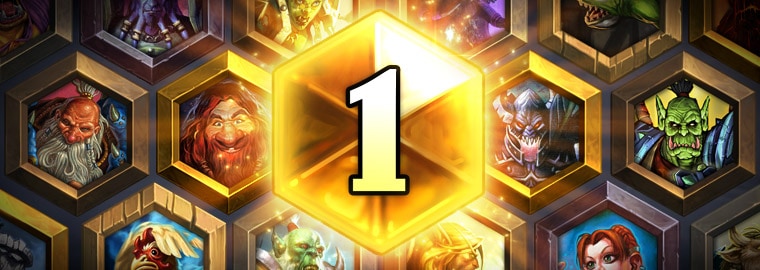
Summary of Tips
Here’s a quick list of all the tips in this article:
- If you want to hit Legend try to be Spike (for a season).
- To best prevent yourself from tilting look inwardly and try to figure out what your personal triggers are.
- Setting reasonable expectations is a good way to stop yourself from going ‘on Tilt’
- Think in Natural Frequencies, NOT percentages: Over 500 games you can *expect* A LOT of bad luck.
- It is probably a mistake to assume that prior results predict future results.
- Loss Streaks happen (even with very High win-rates). Accept it and move on.
- To beat Tilt, you must experiment with a variety of techniques until you find something that works for you.
- Look for gems — There is joy to be found when misplays are discovered.
- Learn to not give a fuck. If thats not possible for you, try your best to avoid (or mentally prepare yourself for) high stakes games.
- What do you love about Hearthstone? When on tilt just do that: Find happiness now and grind later.
- After every bad loss roll a dice; don’t play another game of Hearthstone until you roll two 6’s in a row. While doing this you should of course be wearing a pair of lucky underpants.
- Just be careful what you wish for. Good night and good luck.
References and Further Reading
‘THE GRIND’ SERIES:
- Smashthings, The Grind, Part I: Introduction
- Smashthings, The Grind, Part II: Research & Self Mastery
- Smashthings, The Grind, Part III : Deck Selection
- Smashthings, The Grind, Part IV: Psychology
PERSONALITY TYPES:
- Brian Kibler, The Problem of Big Game Hunter: I’ve Got the Fun in my Sights!
- Mark Rosewalter, Timmy, Johnny, and Spike
- Mark Rosewalter, Timmy, Johnny, and Spike Revisited
- 16 personalities.com, homepage
ON PSYCHOLOGY:
- Barbara Connors, Avoiding and Dealing with Tilt [Poker Article]
- Ben Goldacre, Placebo! Nocebo!
- Ben Goldacre, Risky Business [Blog Post]
- Kinkymuffin, The Other Side of (the) Hearthstone
- Liam Blackwell, The power of superstitions and rituals in sport
- PC Gamer (Tim Clark), Reynad: RNG in Hearthstone is “the whole reason that people are celebrities” [Interview]
- Smashthings, Playing to Win Part One: Defeating the Scrub Mentality
- Smashthings, Weighted Coin-Flip Simulator [Python Code]
- Stonekeep, 5 Tips on How to Improve Your Ladder Experience


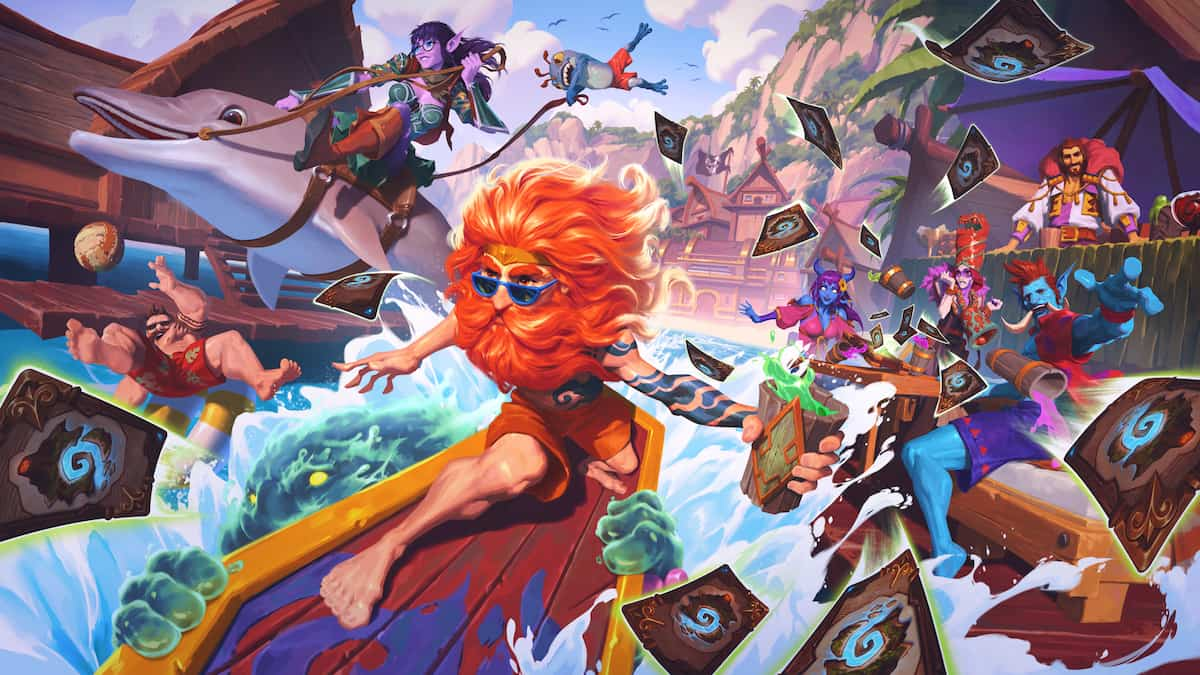
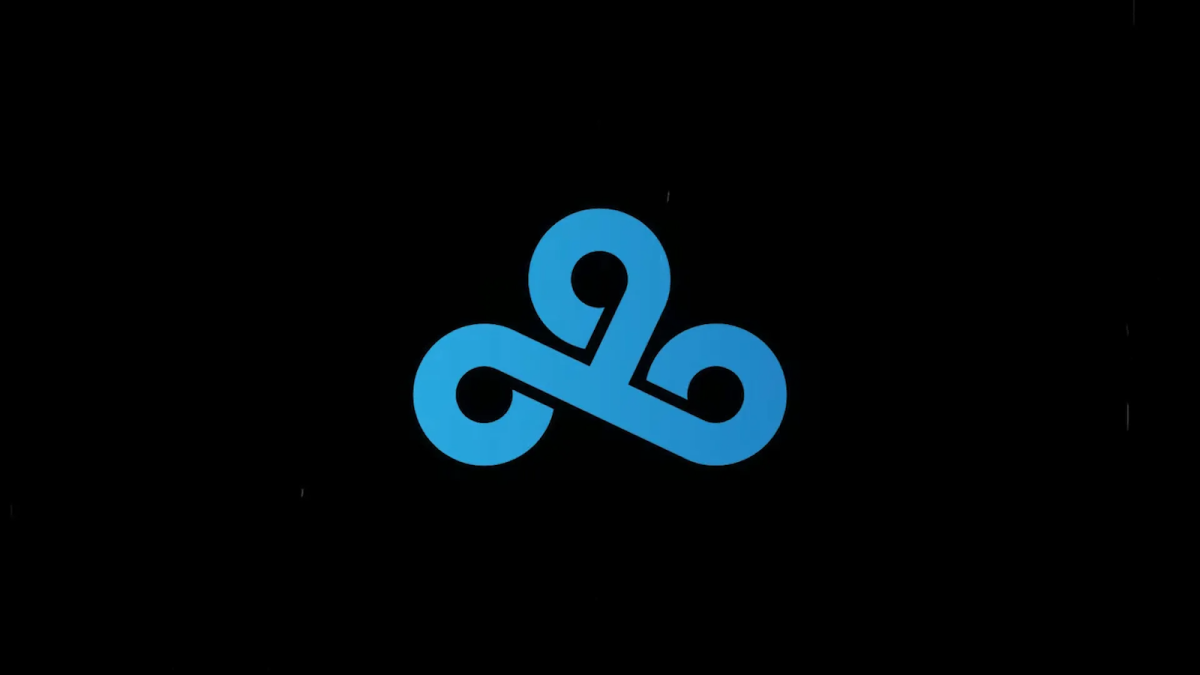
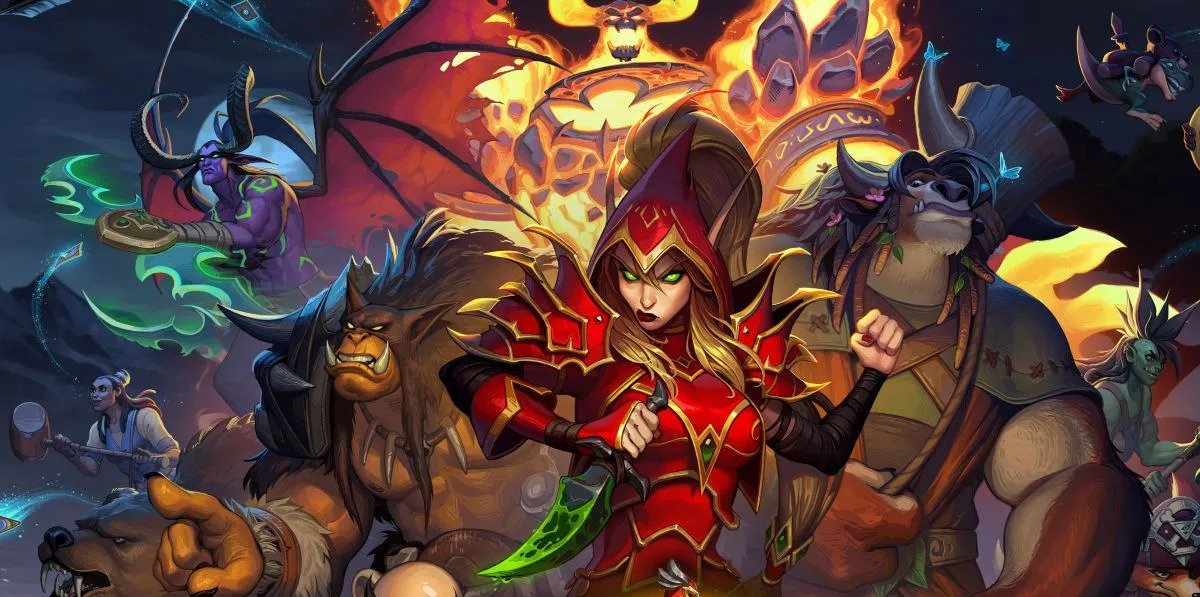
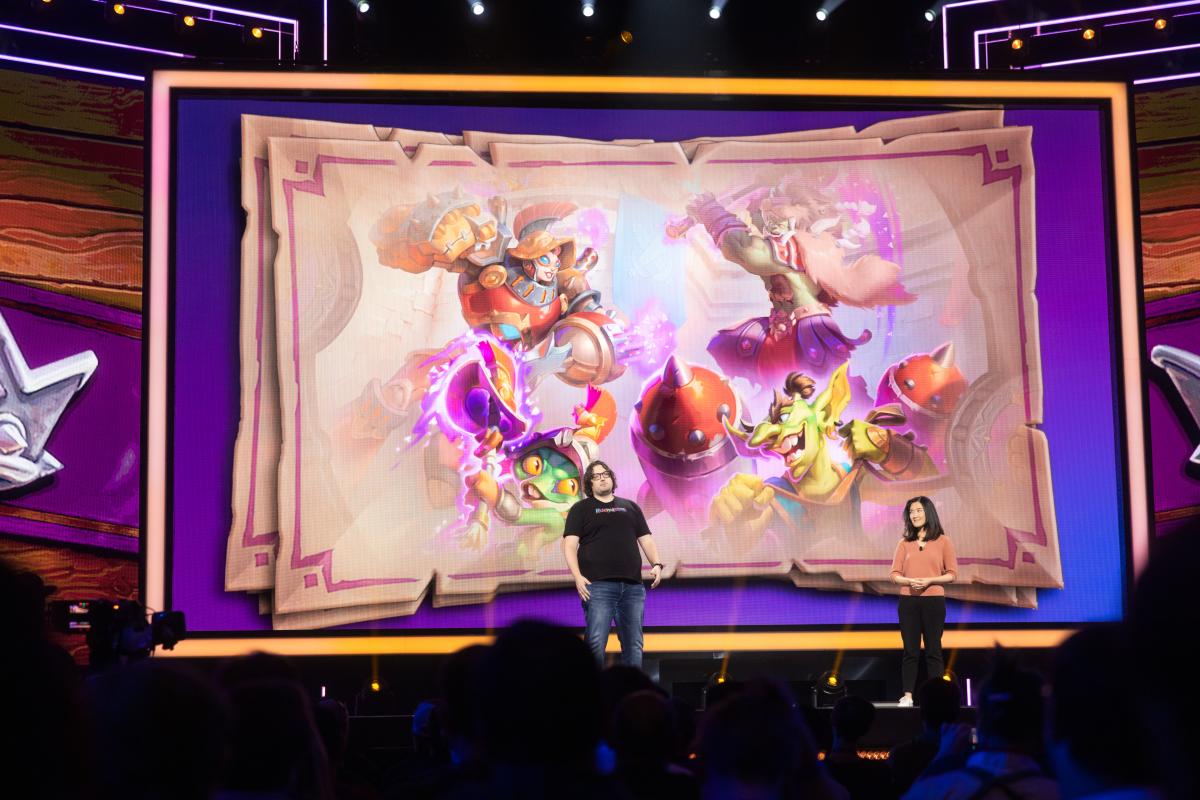
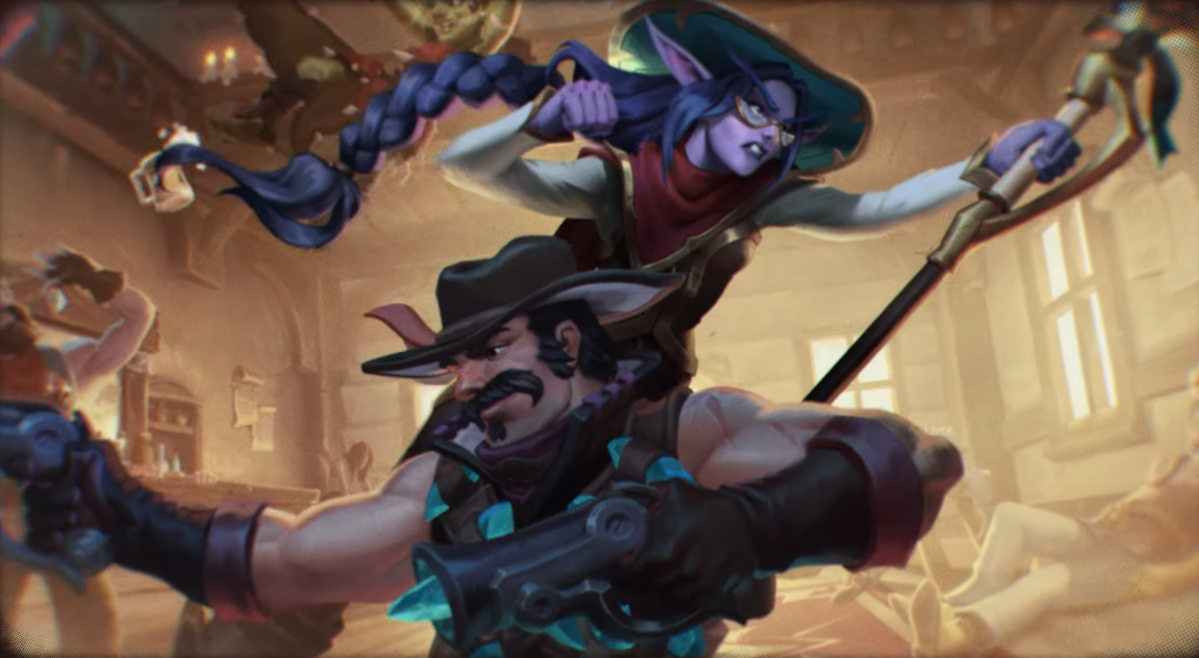
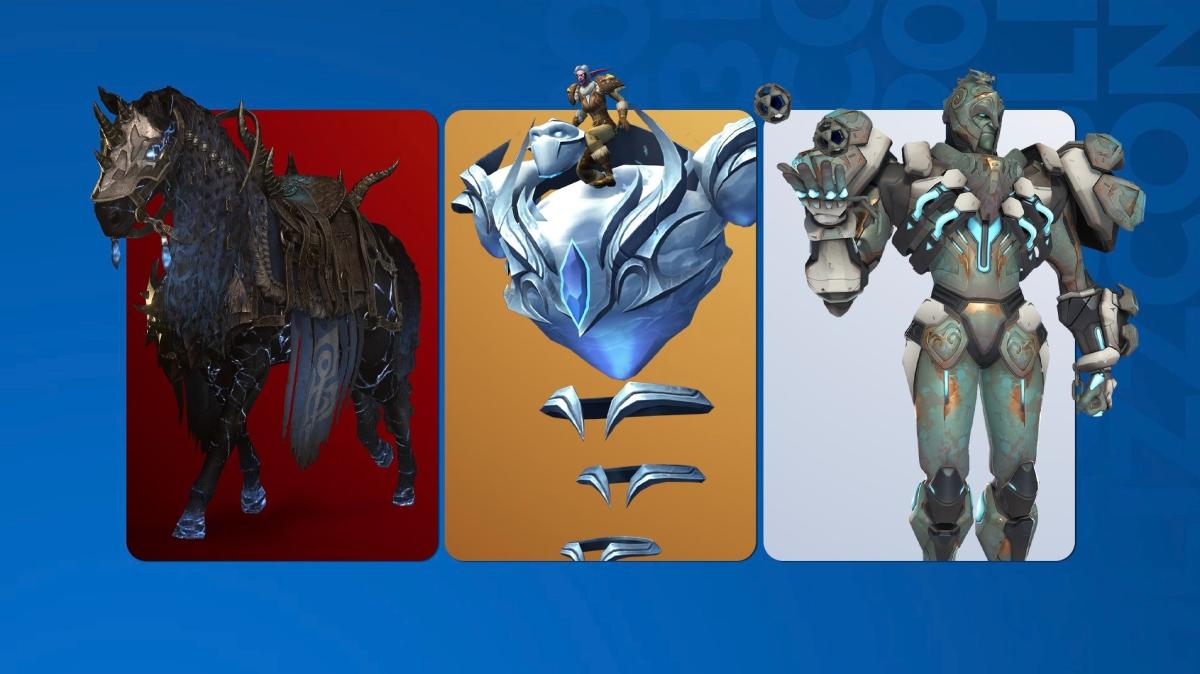

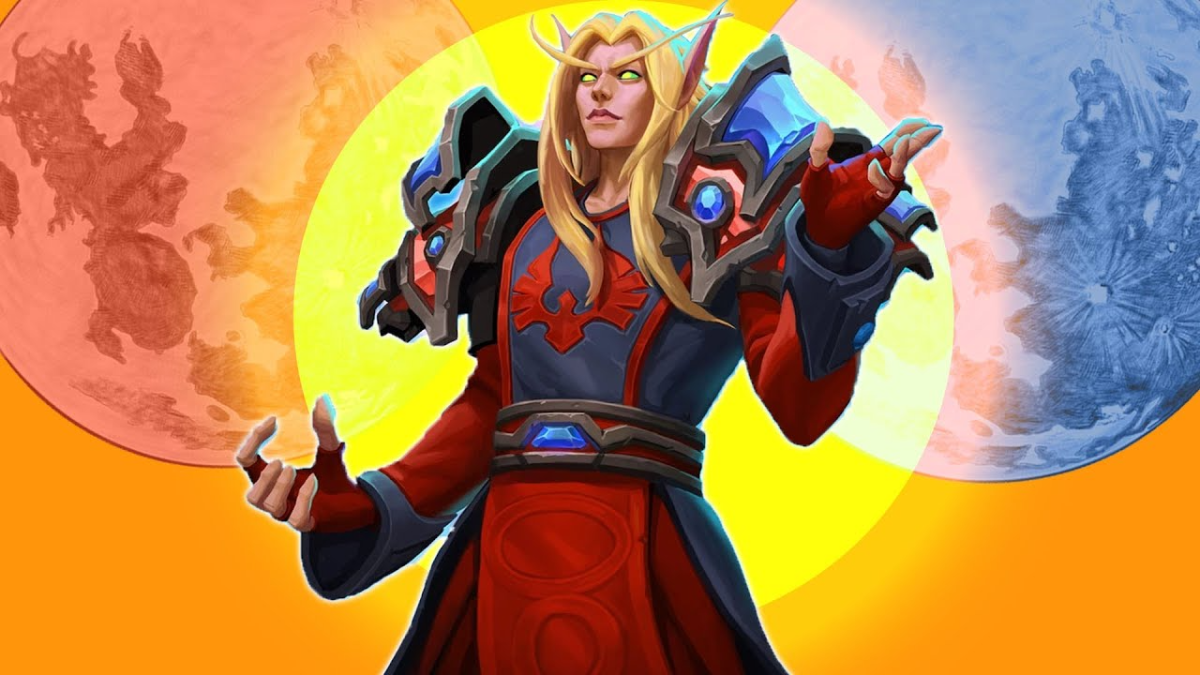
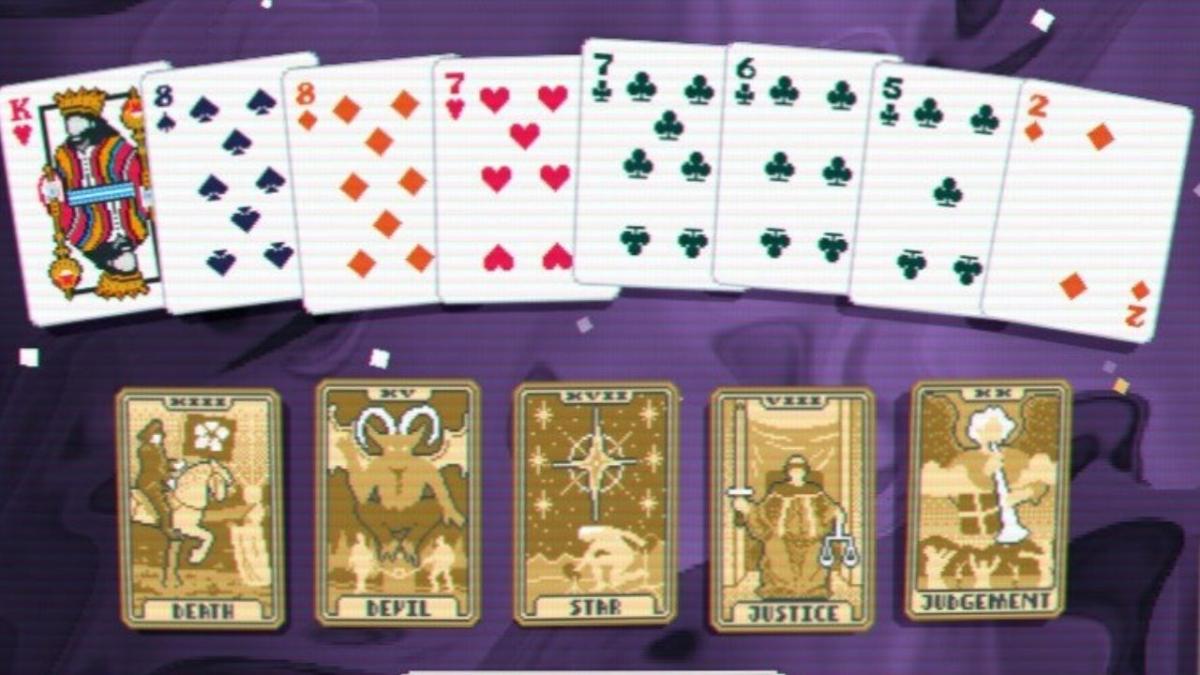
Published: Oct 30, 2015 11:04 am